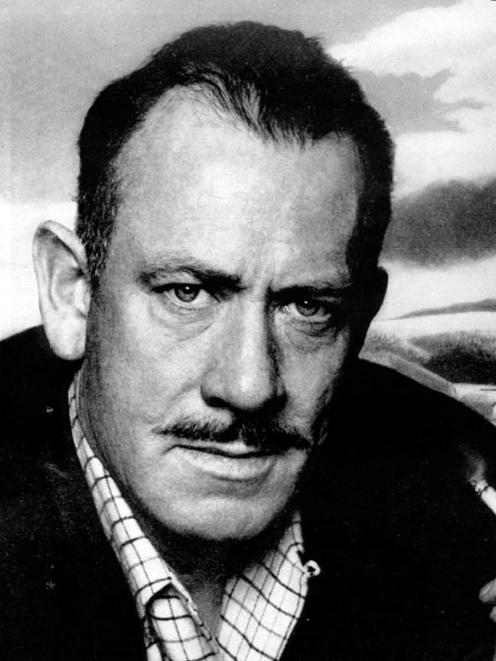
Nobel prize-winning author for literature John Steinbeck, who died in 1968, once said that "the free, exploring mind of the individual human being is the most valuable thing in the world. And this I would fight for: the freedom of the mind to take any direction it wishes undirected. And this I must fight against: any idea, religion or government which limits or destroys the individual".
Steinbeck would be concerned today, where freedom of speech in general is increasingly under threat. History shows that totalitarian regimes are only interested in the domination and control of citizens where the all-powerful state dictates what can and cannot be said. Any attempt to challenge or question this authority can have dire consequences for an opponent. Many countries have little regard for
basic human rights. Citizens can be arbitrarily arrested, incarcerated and silenced. Even in Hong Kong the light of democracy has now largely been extinguished. In recent decades, numerous journalists in a variety of countries have been murdered, unlawfully detained, intimidated and harassed.
In 2018, Jamal Khashoggi was brutally murdered at the Saudi Arabian embassy in Turkey. As a Saudi citizen he had been critical of the government, including its involvement in the Yemen conflict. Fearing for his life, he had moved to the United States in 2017 and become a columnist for The Washington Post where he continued to express concerns about the state of his country. His final newspaper column was published following his death.
Conflict continues in much of the Middle East. Sadly, hope for change in Afghanistan has again evaporated.
Western democracies have in general encouraged individual liberty and thought, with free speech being a hallmark of this. The laws of our country embrace freedom of speech principles in the broadest sense, with a line being drawn when threats or intimidation are directed towards a group or individuals. However, there is no reason for complacency.
Increasingly, even in democracies, the state and its primary institutions, including universities, are often seen to be imposing a culture of control and conformity. In the media and elsewhere, a diminishing range of opinions and ideas are being expressed or published. Being offended or having one’s sensibilities upset in some way does not justify shutting down free speech.
Debate and discussion on any topic needs to be open and robust, allowing the greatest possible exchange of ideas. No-one should be protected from a different point of view.
In recent years some countries in Europe, including the UK, have implemented hate speech laws which have proven controversial and problematic in that even moderate speech can end up being criminalised. Despite this, in 2019 the then justice minister Andrew Little asked the ministry of justice to work with the human rights commission to examine whether our laws properly balance the issue of freedom of speech and hate speech.
He noted, "We already have laws to protect against what is called hate speech." These laws include the Crimes Act, Summary Offences Act, Harassment Act, Human Rights Act, Race Relations Act, Broadcasting Act and Digital Communications Act. In the absence of any credible basis for such a law, the Government nonetheless has indicated an intent to progress this.
However, several months ago when asked about the scope and nature of the hate speech law proposed, tellingly the Government’s own ministers were unable to say with any clarity how this law would work and who might or might not be subject to prosecution under it. There were even contradictory answers given to questions. Something as confusing and poorly thought out as this should never become law. It would be hugely divisive and damaging for New Zealanders.
There is nothing wrong with our current laws, which already provide citizens with ample safeguards. The Government should be proactive in protecting the free speech we already enjoy, not trying to restrict it. A society cannot progress where ideas and opinions are muzzled, whether this be in an autocracy or a democracy. Free speech is golden. It is not something that fell out of the sky yesterday. The process leading to this has taken hundreds of years to evolve and we have been fortunate to become the beneficiaries of this. It still remains a fragile concept and without awareness and vigilance it could easily slip away.
Joss Miller is a retired Dunedin lawyer.











